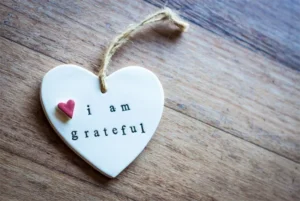 There is a common pattern to the way many people tell stories about their emotions, particularly emotions that come up in their relationships. It involves a passive perspective, a perpetual stance of being made to feel certain ways. “She made me feel like I was invisible.” “He was trying to embarrass me.” “Her nagging is what made me so angry.” “His lack of support is the reason I’m so overwhelmed.” Of course, it is completely normal for emotions to be sparked by interactions. We are, after all, human. Yet, when a person consistently experiences a lack of ownership over their feelings and reactions, it can be problematic for several reasons.
There is a common pattern to the way many people tell stories about their emotions, particularly emotions that come up in their relationships. It involves a passive perspective, a perpetual stance of being made to feel certain ways. “She made me feel like I was invisible.” “He was trying to embarrass me.” “Her nagging is what made me so angry.” “His lack of support is the reason I’m so overwhelmed.” Of course, it is completely normal for emotions to be sparked by interactions. We are, after all, human. Yet, when a person consistently experiences a lack of ownership over their feelings and reactions, it can be problematic for several reasons.
1. It makes you feel powerless.
A person can easily trigger a feeling in you. Their treatment or actions can serve as a catalyst for your emotional response. However, the emotions you experience exist in you alone. No matter how another person behaves toward you, you can have control of your response. You may leave an interaction feeling hurt, angry, misunderstood, irritated, or ashamed, but these feelings belong to you.
When you believe your feelings are entirely at the mercy of someone else, you lose a great deal of personal power. This is, in part, because both your interpretation of and reaction to your circumstances can have as much impact on how you feel as the circumstance itself. If you find yourself reading negative thoughts into what someone said about you or using something they did to put yourself down and feel victimized, you are doing yourself (or, in some cases, the other person) a disservice.
Of course, it’s important to acknowledge and accept whatever feelings you have. You can’t and shouldn’t try to turn them off, or ignore whatever is triggered inside you. However, when you blame another person for your feelings, it is easy to lose touch with the things that are in your power. Instead, you can ask yourself why you felt so stirred up. What messages were you telling yourself about the situation that could have made it feel worse? Were you relying on that person to make you feel a certain way? Are there things you could do to feel better? Did you like the way you acted or handled the situation? If not, how could you react differently in the future?
2. It generates a victim mindset.
When your focus becomes too external, you may be looking to attribute responsibility to others rather than having a more curious attitude about your own reactions. This often leads to having a victim mindset rather than a growth mindset. In a victim mindset, you’re likely to feel like you have little control over your circumstances. A growth mindset means you’re open to learning and believe you can evolve, grow, and impact your life. A person in a victim mindset is often passive, for instance, complaining about their boss rather than focusing on a goal at work or shutting out their significant other rather than communicating directly.
A person’s tendency to “play the victim” is something they usually come by honestly, often based on circumstances from their past. Victimized feelings may have been appropriate to the situation we were in when we were young children without power, helpless, and at the mercy of our parents. In discussing this, my father, psychologist and author Robert Firestone, wrote, “Later as an adult, things happen that are sometimes beyond your control and understanding. However, the adult who is still playing the child victim role… just keeps noticing over and over that the situation is unreasonable, unfair or threatening but doesn’t make the appropriate adaptive responses.”
3. It stops us from digging deeper.
Your biggest emotional reactions are often tied to your history. You may tend to feel especially hurt, insulted, and ashamed being called something that resonates with you from long ago. For example, if you were called “loud” or treated as a burden as a child, having people act overwhelmed or annoyed by you as an adult may feel especially painful. If you were ignored or rejected as a child, your partner forgetting something you asked them to do may feel particularly cruel or hurtful. When you only deal with these reactions in the present, you deny yourself the chance to know yourself better. What past events hurt you in your life? How do they get triggered in the present?
When you aren’t curious about your emotions, and instead shift to blame, you fail to have empathy for yourself and what you may have gone through. You may then continue a cycle of being triggered and falling victim to feelings you don’t necessarily understand or that don’t fully fit your adult situation. This can contribute to miscommunications, conflict, and a lack of understanding in your relationships.
4. It disconnects us from more adaptive emotions.
The point of stopping the blame game when it comes to your emotions, is not about burying or denying what you feel. All of your feelings are valid and acceptable. They are also worthy of exploration. When your exploration of your feelings ends with blaming another person for them, you stop short of getting to deeper core emotions that have a lot of meaning and influence in your life.
For example, one person I spoke with recently talked about how she felt when her partner came home from a work trip exhausted. She described how he gave her a quick kiss and went straight to bed. At first, it was easy for her to list off all the bad feelings he had caused her by his inconsiderate behavior. He hadn’t asked how she was, he hadn’t said that he missed her, he hadn’t thanked her for taking care of the kids. All of this made her feel unloved and taken for granted. When I asked how she had felt anticipating his return that night, she eventually admitted to feeling embarrassed. She explained, somewhat reluctantly, that she had hoped for a gift or an act of affection when her partner came home.
As she spoke, she visibly winced at admitting what she wanted. When I asked why she would feel embarrassed, she became very sad. She started to express deep feelings of shame about wanting anything. As the youngest in her family, she was often called whiny and demanding by her parents and siblings, and she learned to shut down rather than ask for what she wanted. After, she felt sad and made this connection, the woman felt immense relief. She later called me to say how glad she was that she didn’t act on her first impulse to ice her partner, because, the following day he was waiting for her when she got home, having cooked dinner and telling her how much he’d missed her on his trip.
Regardless of her partner’s actions, for the woman, allowing herself to explore the deeper ties of her reaction to her past helped her understand something profound about herself. She could then have empathy for her partner’s exhaustion from his trip and not take it personally. The point in not blaming others for your feelings is not about allowing anyone to abuse or control you. In fact, it is about just the opposite, reclaiming your feelings as your own, so you can feel strong in recognizing and exploring them. By approaching your emotions with curiosity, empathy, and acceptance, you can shift the focus from criticizing yourself or building a case against someone else to understanding yourself and taking actions that are more in line with what you want, thereby recognizing you have power in your adult life

